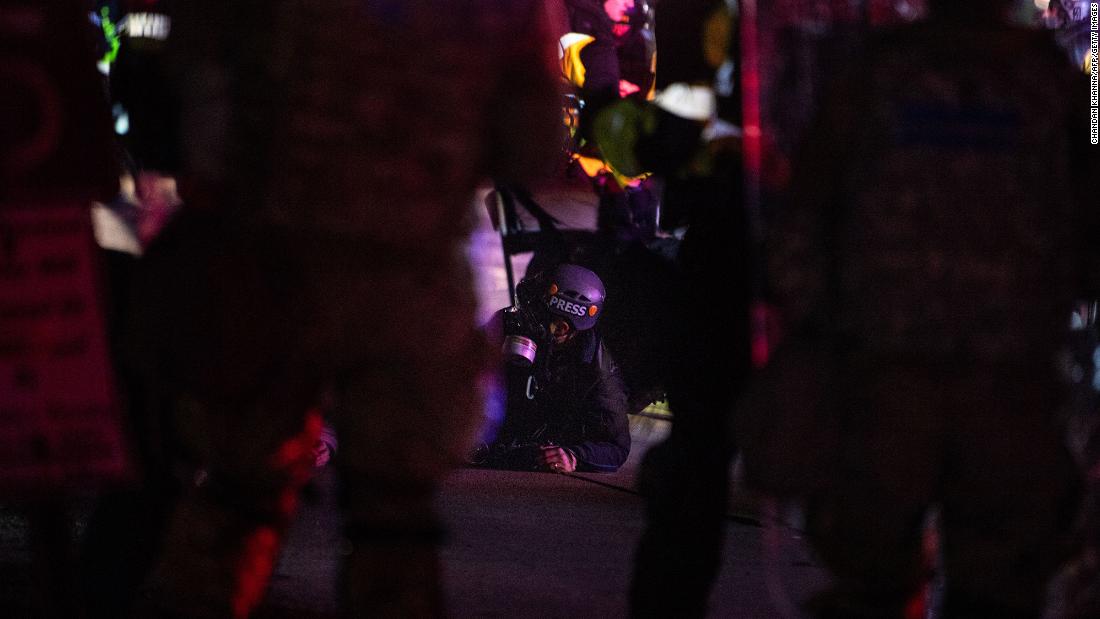Minnesota has a First Amendment problem
Authorities in Minnesota are coming under wholly deserved scrutiny for mistreating members of the media who are covering protests in Brooklyn Center and beyond.
“We heard the regret before,” Sidner said. “So what changed, exactly? Nothing. Nothing changed. The police are still treating journalists [by] throwing them to the ground.” So “it should not be a regret,” she said. “It should stop. It should change.”
“Now, what they’re doing to the journalists, they are also doing to some of the protesters who had nothing to do with the violence as well, and we should speak on that as well,” Sidner added, speaking up for the constitutional rights of protesters.
Unrest has consumed portions of Brooklyn Center, about 10 miles from downtown Minneapolis, since Daunte Wright, a Black motorist, was shot and killed by a Minnesota police officer during an arrest attempt on April 11.
Numerous members of the media have been harassed, assaulted, or arrested, according to a letter that was jointly signed by dozens of media outlets and filed with state officials on Saturday.
The letter disclosed that CNN producer Carolyn Sung was “thrown to the ground” and arrested by Minnesota state troopers on Tuesday night; the details of her treatment, as conveyed in the letter, are disturbing.
Sung, who is Asian-American, repeatedly ID’ed herself as a CNN journalist, and showed her credentials. The letter stated, “Despite repeatedly hearing Sung identify herself as a member of the press and tell the troopers that the zip ties were tight on her wrists, one trooper yelled at Sung, ‘Do you speak English?'”
Sung was transported to the Hennepin County Jail; patted down; fingerprinted; and “ordered to strip and put on an orange uniform” before attorneys were able to secure her release.
Later in the week, on Friday, reporters in Brooklyn Center were rounded up, forced to the ground, and photographed. “Some colleagues got pretty roughed up,” Reuters photographer Leah Millis said.
“I’ve only seen that in Afghanistan when US forces were trying to control a local population,” CNN’s Miguel Marquez said.
“Some in law enforcement clearly view reporters as part of the problem and are trying to force us to commit to their controls regardless of basic rights,” Marquez added.
In a lengthy statement, the Minnesota State Police pledged to “respect the rights of the media to cover protest activity.” All of these words and claims may be put to the test soon.
On Sunday’s “Reliable Sources,” Marquez also talked about the tense moment when his crew was assailed by angry protesters last week.
Marquez and Sidner said they cover the protests in order to give voice to all the frustrations and pain.
![]()


